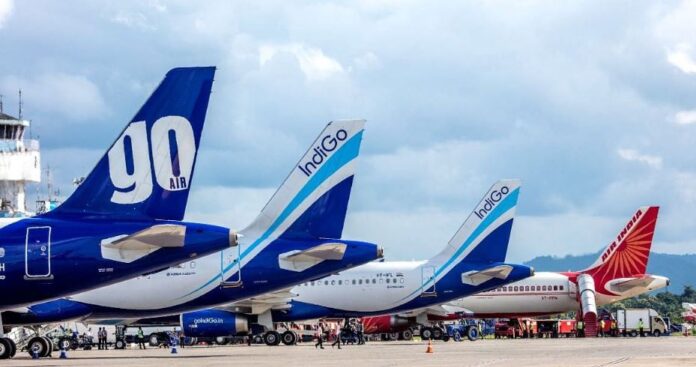In a series of alarming incidents over the past 48 hours, more than 10 Indian airline flights have been affected by hoax bomb threats, leading to significant delays and emergency diversions.
On Tuesday, Singapore’s Air Force was compelled to deploy two fighter jets to escort an Air India Express aircraft away from densely populated areas due to a bomb threat. Earlier the same day, an Air India flight from Delhi to Chicago made an emergency landing in Canada as a precautionary measure. While bomb threats to airlines are not unusual in India, the sudden surge in incidents since Monday remains unexplained.
On Monday, bomb threats originating from an X (formerly Twitter) handle led to the diversion or delay of three international flights from Mumbai. In response, authorities have detained a teenager suspected of making these threats.
The following day, seven flights, including two operated by Air India, were disrupted by threats from another X account, which has since been suspended. Screenshots revealed that the account tagged airlines and local police, listing specific flight numbers in the threats.
Air India has confirmed its full cooperation with authorities in identifying those responsible and is exploring legal options to recover damages incurred from these disruptions.
Indian airports maintain a Bomb Threat Assessment Committee tasked with assessing and responding to such threats. Responses often involve bomb disposal units, sniffer dogs, police, medical personnel, and emergency services. Passengers and their baggage are off-loaded and re-screened, while the aircraft undergoes thorough checks by engineering and security teams before resuming operations. These procedures not only delay flights but also incur significant financial costs for airlines and security agencies.
International agencies may also become involved when incidents affect foreign airspace. On Tuesday, Singapore’s Defence Minister reported that two fighter jets had escorted an Air India Express flight from Madurai to Singapore, which safely landed at Changi Airport. Defence Minister Ng Eng Hen stated, “Once on the ground, the plane was handed to the Airport Police. Investigations are ongoing.”
Authorities continue to investigate the motives behind the recent threats as they work to restore normal operations and ensure the safety of passengers and crew members.
Key Points:
- Hoax Bomb Threats: Over the past 48 hours, more than 10 Indian airline flights have been disrupted by false bomb threats, resulting in delays and emergency diversions.
- International Response: Singapore’s Air Force escorted an Air India Express flight due to a bomb threat, while an Air India flight from Delhi to Chicago made an emergency landing in Canada.
- Teenager Detained: Authorities have detained a teenager in connection with the threats, which were posted on the social media platform X (formerly Twitter).
- Multiple Incidents: On Monday, threats targeted three international flights from Mumbai, followed by threats on Tuesday that affected seven more flights, including two Air India planes.
- Air India’s Reaction: The airline is cooperating with authorities and may pursue legal action to recover damages caused by the disruptions.
- Bomb Threat Response Protocol: Indian airports have a Bomb Threat Assessment Committee and procedures involving bomb squads, sniffer dogs, and re-screening of passengers and baggage.
- Financial Impact: Hoax bomb threats result in significant financial costs for airlines and security agencies due to delays and emergency measures.
- Ongoing Investigation: Singapore’s Defence Minister confirmed that the Air India Express flight landed safely and is under investigation by the Airport Police. The motive behind the threats remains unclear.



